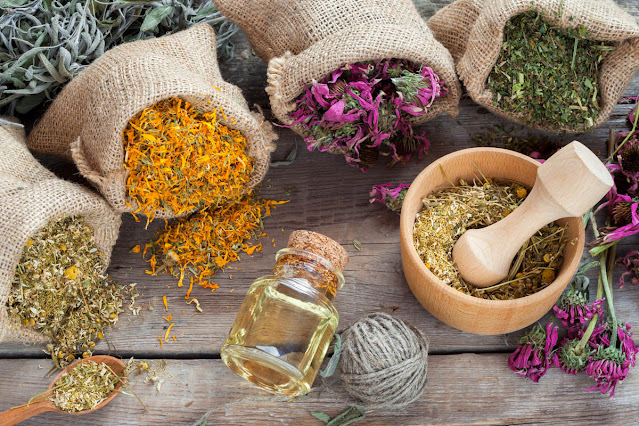Natural Blood Purifier Herbs
Natural blood purifier herbs help to cleanse and purify your blood, and they are safe for use by everyone. They may also benefit those with allergies. Before you start taking natural blood purifier herbs, it is important to know how they can affect you. If you are allergic to certain plants, it is always best to talk with a health care professional.
Burdock root
Burdock root is an ancient, powerful blood purifier that has been valued across continents for thousands of years. It has been used to treat numerous illnesses and to stimulate the immune system.
Burdock root is considered to be an oxytocic agent. This means it helps regulate hormone secretion and promotes sweating. In addition, it has hypoglycemic properties, reduces swelling, and eliminates toxins in the bloodstream.
Several studies have shown that burdock root can help with a variety of medical conditions, including arthritis, skin issues, rheumatism, and even cancer. Research also indicates that it may slow tumor development.
A study found that burdock root tea may reduce the inflammatory status of patients with knee osteoarthritis. The herb's antioxidant properties may also benefit skin.
Another study showed that the antioxidant properties of burdock may help people with cancer. The root's caffeoylquinic acid derivatives act directly on proliferating cancer cells to kill them. They also stop cancer cells from spreading.
Studies have shown that the burdock plant contains high levels of potassium, magnesium, and fiber. Additionally, the plant has anti-inflammatory flavonoids. These antioxidants are believed to be beneficial for both skin and hair.
Burdock root is often used in combination with other herbs to maximize its benefits. You can also buy supplements containing the root. However, you should always consult with a healthcare provider or other practitioner to ensure that the supplement is safe for you.
Cilantro leaf
One of the oldest known medicinal plants, cilantro has been used for thousands of years. The leaves and seeds of the plant contain many active compounds that help with the cleansing of the liver and blood. It has been reported to have anti-bacterial, anti-fungal, and anti-inflammatory effects.
Cilantro is also a good source of antioxidants. These are important because they help the body by reducing oxidative stress. This stress can be damaging to the cells and can contribute to heart disease.
In addition to its anti-inflammatory and anti-oxidant properties, cilantro has also been found to be effective in lowering cholesterol and blood pressure. It also reduces oxidative stress in neurons, which can cause a variety of degenerative diseases.
Another benefit of cilantro is its ability to detoxify kharish ka ilaj, including lead. These toxic metals can build up in the body, causing chronic low and high grade toxemia.
It has been shown that the chlorophyll in cilantro can reduce the amount of lead that is deposited in the kidneys and bone. Although more studies are needed to determine its efficacy as a heavy metal detoxifier, this study suggests that it may be beneficial to those who consume seafood with mercury.
Besides its many antioxidant and cleansing properties, cilantro is believed to have a soothing effect on the skin. The terpenoids, which are a component of cilantro, have been reported to have anti-inflammatory and analgesic effects.
Beetroot
Beetroot is a natural blood purifier that is full of nutrients and has been shown to help people fight diabetes and cardiovascular disease. It is also believed to have anti-cancer and anti-mutagenic properties. In addition, it is said to aid in liver and vascular function.
Beetroot is a rich source of nitrates, which dilate the arteries and increase blood flow. Additionally, it contains iron, which helps repair red blood cells. Nitrates also help to lower blood pressure and prevent a number of diseases.
Beetroot is also known to contain oxalic acid, which is a metal ion chelator that promotes nephrolith formation. Patients with kidney diseases should avoid beetroot.
The most recent studies examining beetroot supplementation are focused on its ergogenic and hypotensive effects. These studies have indicated that beetroot can improve insulin homeostasis, vascular function, and a number of other metabolic processes.
A study conducted at Wake Forest University surveyed 26 men and women over 55 years of age to evaluate the effects of beetroot juice before a moderately intense 50-minute treadmill walk. This study found that the participants reported a significant decrease in their blood pressure. However, it is unclear how the juice affected the glucose levels of participants.
Studies have also suggested that beetroot juice may be a good option for those suffering from Alzheimer's or other cognitive conditions. This is due to the fact that beetroot can lower inflammation and increase blood flow.
Neem
Neem is an amazing blood purifier that is widely used in Ayurvedic practices. Its benefits include cleansing of the blood, detoxification, boosting immune system and fighting infections.
Several studies have been conducted to investigate the antimicrobial properties of neem. The results show that neem extract is a powerful apoptosis inhibitor.
Moreover, neem extract has been found to have protective effects against CCl4-induced liver toxicity in rats. In addition, it showed significant antimicrobial activity against S. mutans, Fusobacterium nucleatum and S. salivarius.
Azadirachtin, a constituent of neem, has a hepatoprotective effect. Also, it helps to maintain normal blood sugar levels.
Some of the other medicinal uses of neem are its antioxidant and anti-inflammatory properties. Moreover, it is also helpful in treating digestive problems.
It is also known to be useful in preventing seasonal diseases. One of the best ways to use neem is to make a paste of it and apply it evenly on your face.
Neem also has a calming kharish treatment. As an important part of aromatherapy, it is often used in massage oils. Additionally, it has anti-fungal and anti-inflammatory properties.
Several South Indian cuisines utilize neem flowers. They are also used in oral hygiene. Besides, neem is a good option for hair care. By keeping the scalp clean, dandruff can be reduced significantly.
When it comes to ayurvedic medicine, neem is one of the most revered products. Various clinical trials have proven its safety at a certain dose.
Violets
Violets are a flower that have many different uses. They can be used as a medicinal plant, or as a decorative garnish in food. In fact, they have been known to help prevent cancer and strengthen the immune system.
Violets are also an excellent source of vitamins A and C. Their mucilage helps soothe inflamed tissues.
Violets have been used as a natural blood purifier. The blue variety is believed to aid in the removal of bacteria. Its leaves are also useful for salads and soups.
Violets are also known for their ability to help alleviate congestion. They have been used to treat sinus infections, bronchitis, and flu viruses.
There are over 400 species of violets. These plants are found around the world. Most of them are found in northern temperate climates.
Some of the most common uses of violets are in cosmetics. The flowers are commonly used in soaps and lotions.
Other uses include adding to salads, desserts, and soups. Wild violets are also used in a wide range of homemade remedies.
While wild violets are safe to eat, they can cause problems for some people. People who are sensitive to the plant should avoid eating raw stems.
Violets are a good addition to salads, soups, and baked treats. They also make a nice tea. But be sure to harvest the flowers while they are in season.
Smudge sticks
Smudging is a practice that dates back thousands of years. It involves burning herbs in order to cleanse an area. A person can use smudge sticks to clear negativity in a space, remove energetic cords, and guide someone to a healthier path.
Several different types of herbs are used to create smudges. The most common herb used in smudging is White Sage. This is a plant that has antimicrobial and antiviral properties. When burned, it produces a calming scent that helps to alleviate stress.
Another herb that is popular among smudgers is lavender. It has a calming fragrance and can help to cleanse the space. Rosemary also offers a strong positive energy that can help to improve mental focus and concentration.
Cedar is a great smudging partner because it can create a powerful protective shield. If you are working on a project that requires a lot of creativity, then you might want to consider using Blue Sage, which is associated with spiritual strength and creativity.
For many people, smudging is an important part of their ritual practices. Whether you are practicing yoga, meditation, or shamanic healing, smudging is a great way to clear the space and bring in positive energy.
Smudge sticks are usually made from a skin kharish ka ilaj, including White Sage, which is used to clear negative energies. Smudges are often mixed with a resin called Dragon's Blood to increase the potency of the other herbs.




Comments
Post a Comment